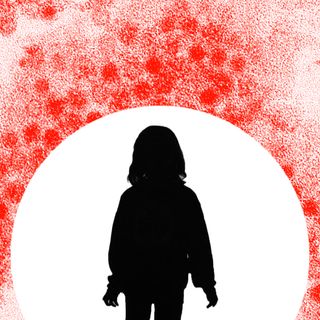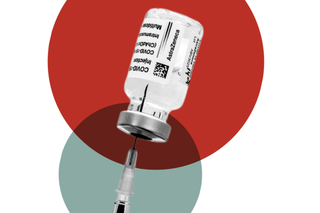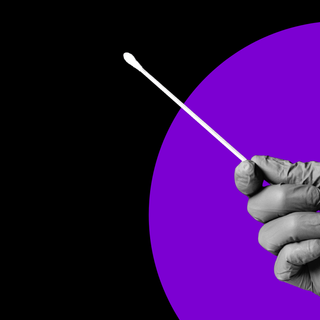
No Link Between AstraZeneca’s Vaccine and Blood Clots, Say WHO, Health Experts
Several European countries have paused the use of Covishield, but experts say their reasons have more to do with politics than science.

The World Health Organization (WHO) on Wednesday urged countries to continue vaccinating with Covishield, the Covid19 vaccine developed by the Oxford-AstraZeneca partnership, despite a number of European nations pausing the use of the vaccine after some recipients later developed blood clots.
There’s no evidence of a link between the vaccine and any blood clotting disorder, the international health body said, with various experts making a similar argument. WHO vaccine safety experts are investigating recipients’ reported cases of thrombocytopenia, a condition in which people do not produce enough platelets to stop bleeding, but a representative called changes to the current recommendations that encourage the use of Covishield “unlikely.”
“As of today, there is no evidence that the incidents are caused by the vaccine and it is important that vaccination campaigns continue so that we can save lives and stem severe disease from the virus,” WHO spokesman Christian Lindmeier told the BBC.
The European Medicines Agency, the U.K.’s Medicines and Healthcare Products Regulatory Authority, its Joint Committee on Vaccination and Immunisation, and the International Society on Thrombosis and Haemostasis (ISTH) have also stressed no proof of a link between the Oxford-AstraZeneca shot and blood clots. The incidence of reported thrombocytopenia following vaccination is found to be proportionate to the incidence among the general population, suggesting no influence from immunization.
“The small number of reported thrombotic events relative to the millions of administered Covid19 vaccinations does not suggest a direct link,” the ISTH said in a statement on Friday.
Related on The Swaddle:
Anti‑Vaxxers Are the ‘Biggest Threat’ to Controlling Outbreaks, US Researchers Warned in 2019
The countries that have suspended the use of Covishield include Germany, the Irish Republic, Estonia, Lithuania, Italy, Portugal, Denmark, Norway, Bulgaria, Iceland, Slovenia, Spain, Austria, the Netherlands, and France. The German Health Minister has called the decision “not political,” but politics are definitely at play.
Vaccine confidence is a key concern in European countries, and governments are trying to walk the fine line between mass vaccination and a skeptical public by trying to appear extra cautious and understanding of concern. France, for instance, has one of the strongest anti-vaccine movements in the world, which has led to large, recent outbreaks of measles as well as to the failure of a population-wide vaccine campaign during the 2009 swine flu outbreak. A recent study of Covid19 vaccine hesitancy in France published in The Lancet found one in three adults were against Covid19 vaccination of any kind.
Prior to pausing the use of Covishield, Germany had prohibited adults over age 65 from receiving the shot, as the vaccine’s efficacy had been tested little among that cohort. This led Chancellor Angela Merkel to publicly decline the vaccine in an interview, as she did “not belong to the group recommended for AstraZeneca.” Only to have Thomas Mertens, the head of the country’s Standing Committee on Vaccination (Stiko) undercut the announcement saying Sitko’s advice to reserve the AstraZeneca jab only for those under 65 had “somehow gone wrong.”
“We never criticized the vaccine, we just criticized the lack of data for the over-65 age group,” Mertens told The Guardian in February, adding that the distinction might not have been clear to the public.
Ultimately, what much of Europe’s pause on the use of AstraZeneca might boil down to is low uptake coupled with low supply. AstraZeneca has only supplied European countries with roughly a third of the vaccine stock it has promised. With Covishield making up a small proportion of the overall vaccination campaign, discontinuing its use might be a way to pacify anti-vax concerns while not significantly setting back the overall effort. Hopefully, such a calculation will pay off.
Liesl Goecker is The Swaddle's managing editor.
Related


How I Have Sex: “I Can End Up Feeling Nothing Even When All the Right ‘Spots’ Are Touched”
